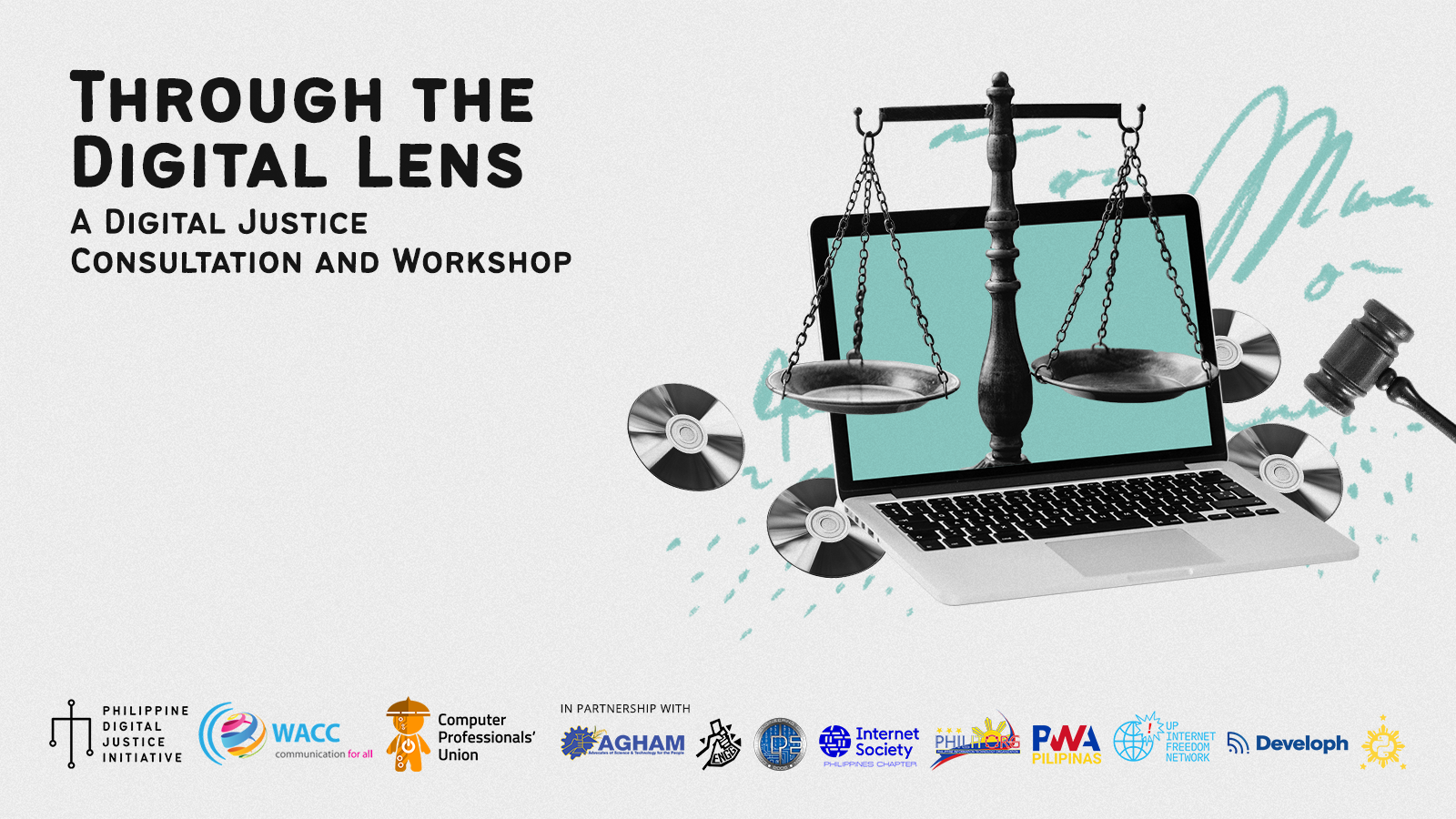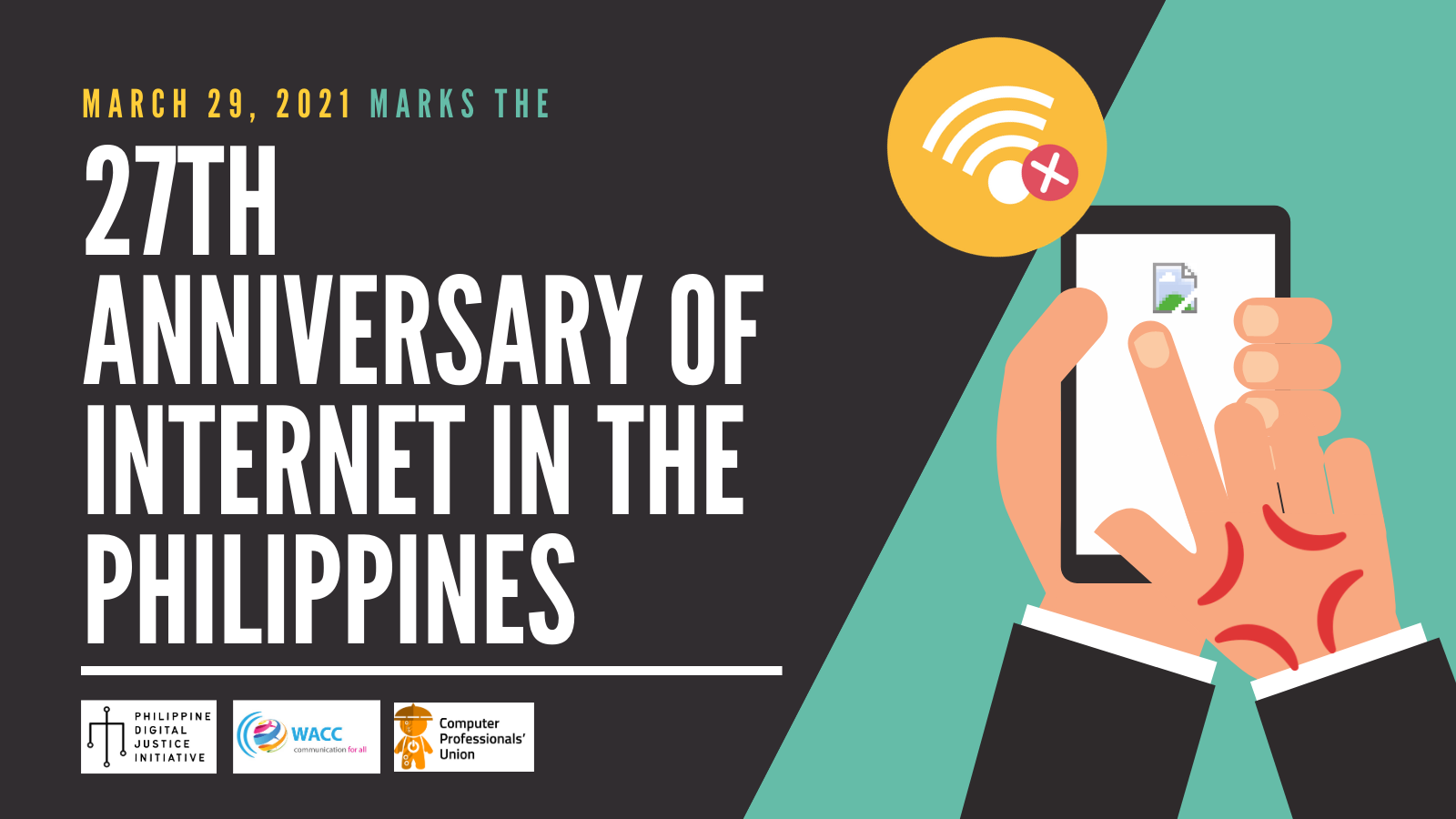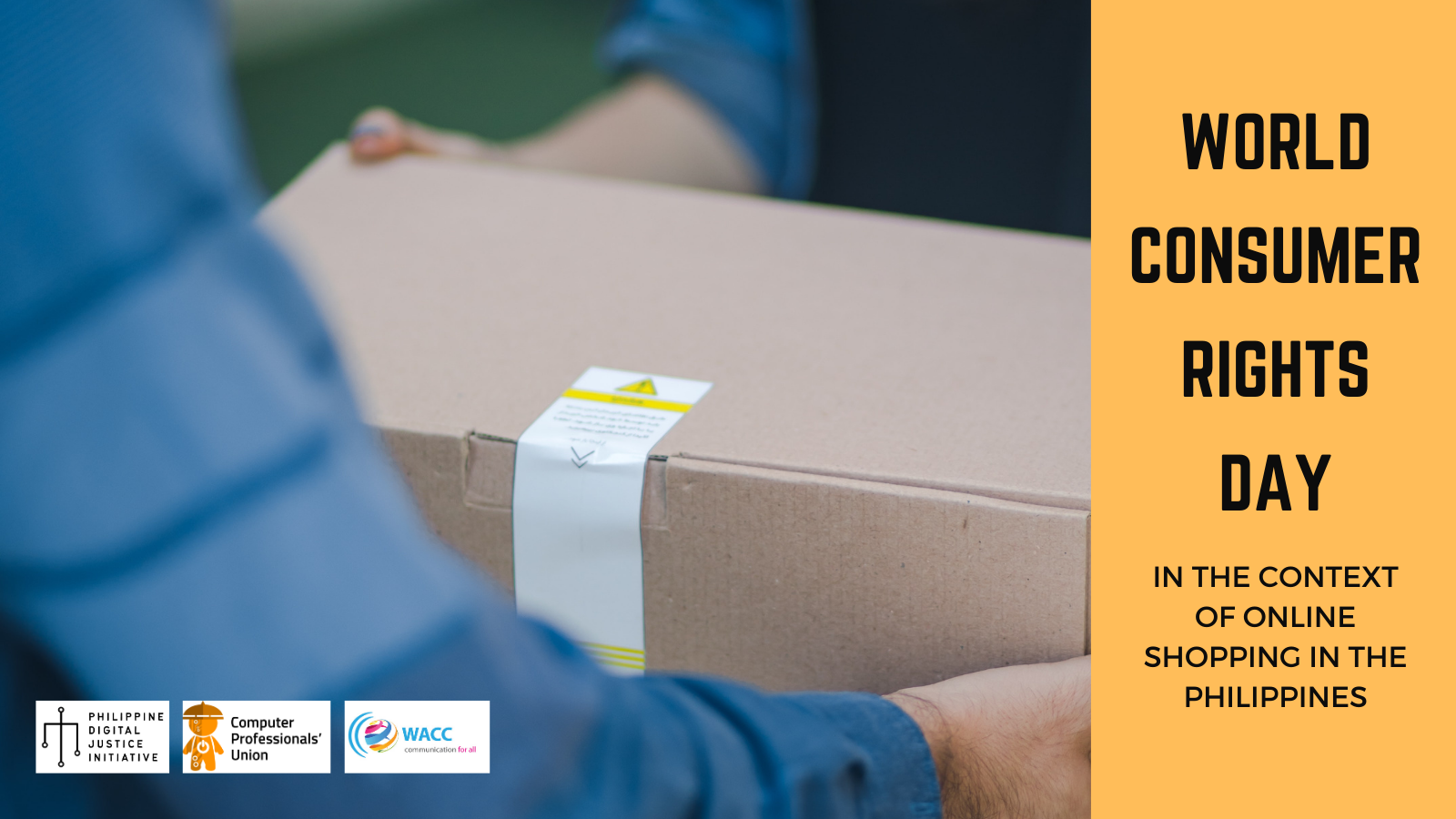Publications
Connection Unstable - Digital Justice in the context of the Youth and Student Sector
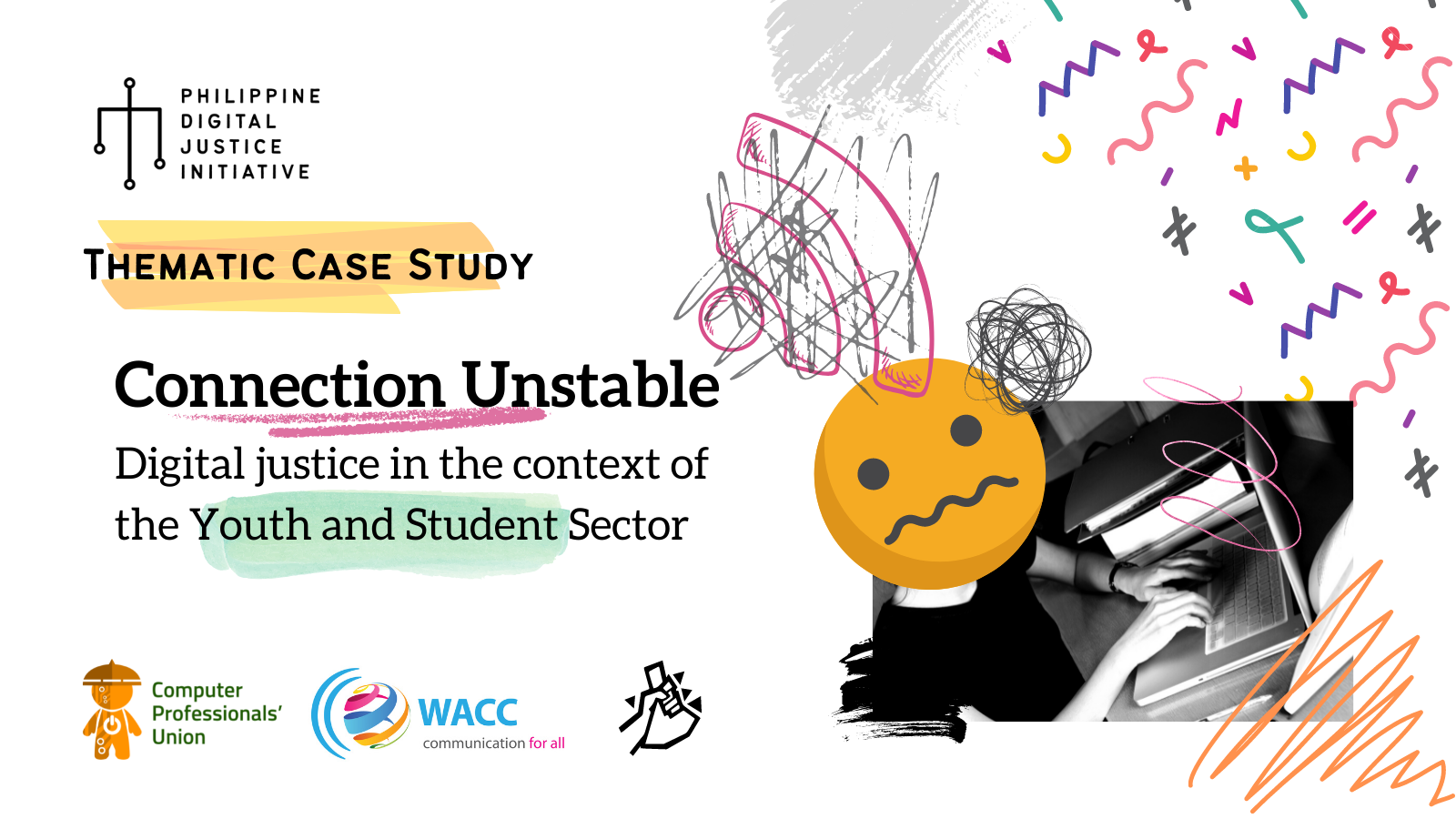
Context
The Philippine youth is a sector of society highly fluent in technology and the Internet. According to the Pew Research Center, 94% of people aged 18 to 29 have reported either using the Internet at least on occasion or owning a smartphone. Meanwhile, Talkwalker reports that almost 98% of social media users in the Philippines are younger than 35 years old. The youth’s high engagement in the Internet and social media, coupled with the relatively young population of the country, has earned it many monikers in media, including the “social media capital of the world”.
Digital Justice Perception Survey
Abstract
The Digital Justice Perception Survey (DJPS) of the Philippine Digital Justice Initiative (PHDJI) is research whose aim is to gather the perception and gauge the level of literacy of Filipinos regarding data justice and other substantially related issues. With internet-connected citizens of Metro Manila participating in the survey, it was found that a significant portion of respondents is still unequipped on the concepts of digitalization and digital justice despite the stated confidence and familiarity on their part. Although some are knowledgeable on the basics, a huge portion is still either neutral or unaware of the topic of digital justice and the like. This research concludes that further educational campaigns (preferably specialized) and movements to educate and equip the public are very much needed, especially with the rapidity of digitalization intensified by the ongoing pandemic.
Digital Justice Consultation with the Education Sector
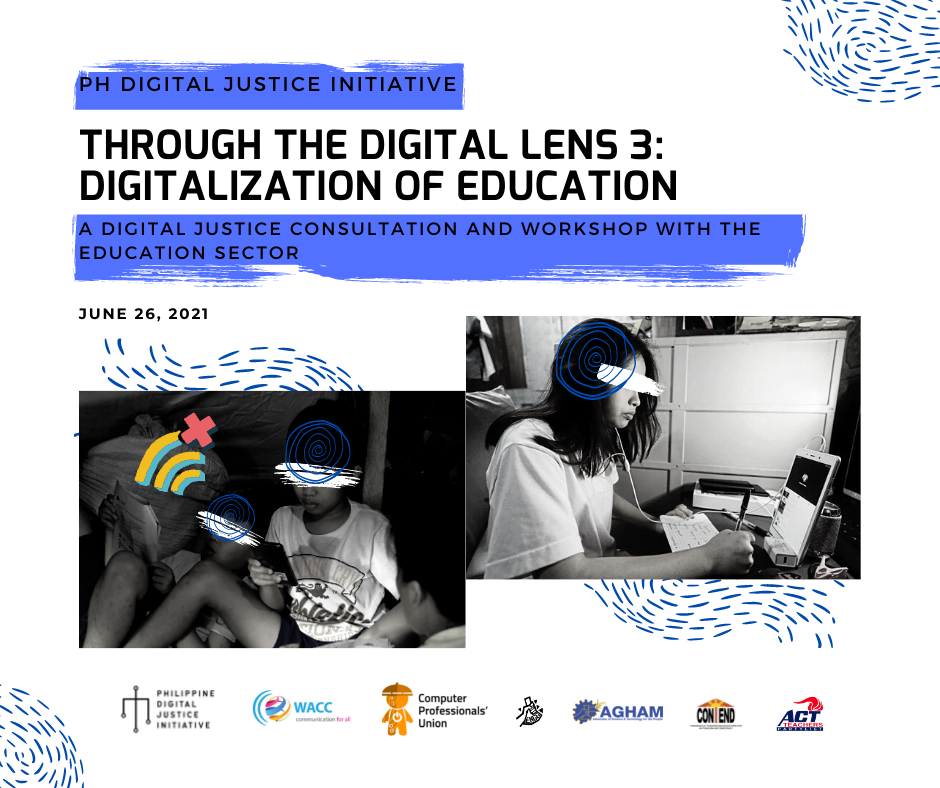
Through the Digital Lens 3, held on June 26, 2021, is part of the series of consultations of the initiative aiming to gather insights, opinions, suggestions, and possible resolutions from the vital stakeholders of digitalization and betterment of the ICT ecosystem in the Philippines. In this event, the Philippine Digital Justice Initiative invited several organizations from the education sector (including the AGHAM Educators, AGHAM Youth, and CONTEND UP) to answer the following pressing issues in digitalization affecting the workers:
Digital Justice Consultation with the Labor Sector
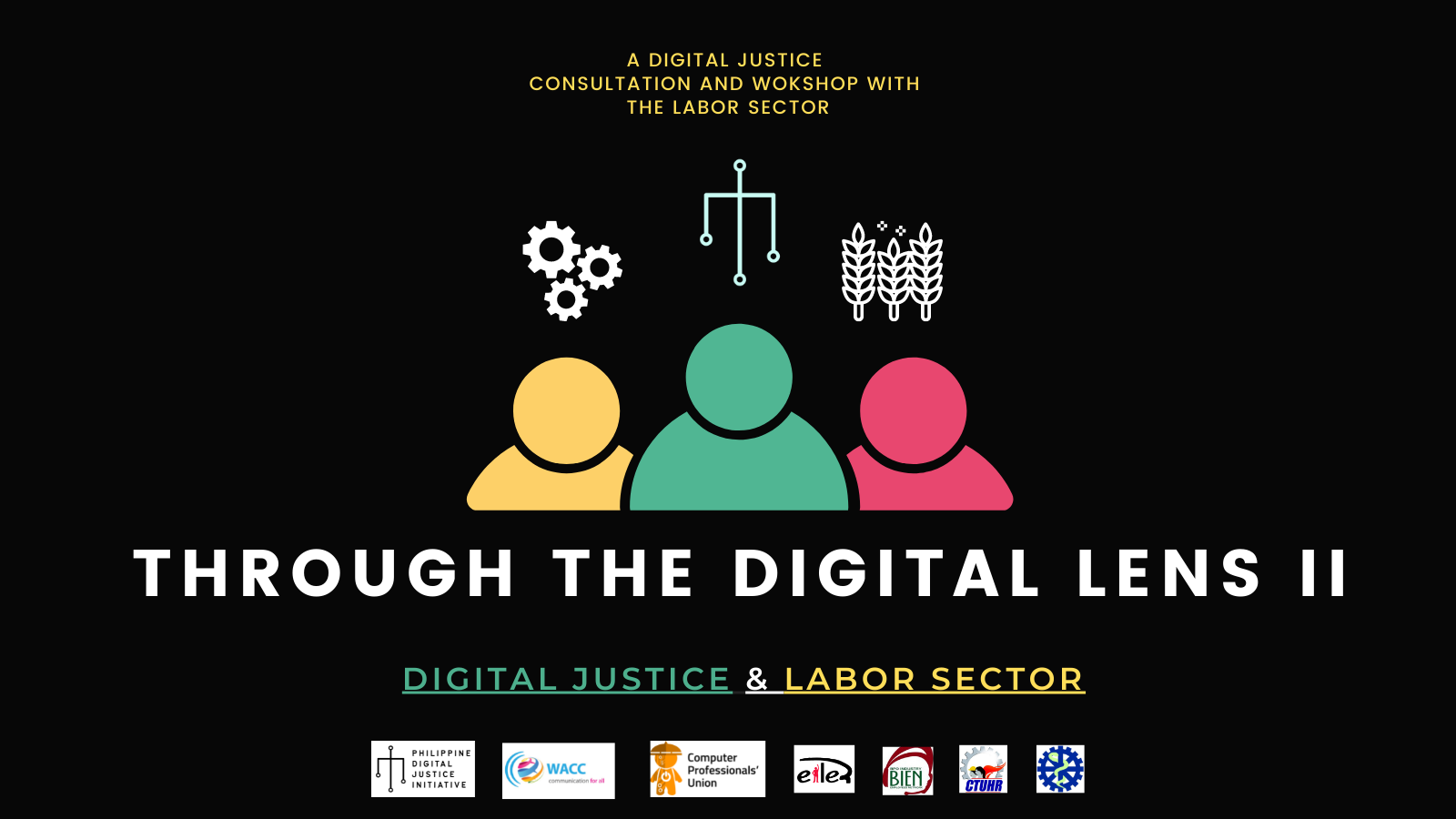
Through the Digital Lens 2, held on May 22, 2021, is part of the series of consultations of the initiative aiming to gather insights, opinions, suggestions, and possible resolutions from the vital stakeholders of digitalization and betterment of the ICT ecosystem in the Philippines. In this event, the Philippine Digital Justice Initiative invited several organizations from the labor sector to answer the following pressing issues in digitalization affecting the workers:
- Technological Inaccessibility and the Digital Divide
- Precarious platform-based Work
- Hyper-surveillance
- Hijacked Democracies
Labor organizations including the Center for Trade Union and Human Rights (CTUHR), Occupational Health Safety and Development (IOHSAD), BPO Industry Employees Network (BIEN), and Ecumenical Institute for Labor Education and Research (EILER) addressed the aforementioned topics, respectively.
Digital Justice Consultation with Policy Experts
Digital Justice - Policy Experts Consultation, held on April 25, 2021, is part of the series of consultations of the initiative aiming to gather insights, opinions, suggestions, and possible resolutions from the vital stakeholders of digitalization and betterment of the ICT ecosystem in the Philippines. In this event, the Philippine Digital Justice Initiative invited the office of Bayan Muna Representative, Congressman Carlos Zarate:
- Data Ownership
- Data Protection
- Data Infrastructure
- Data Democracy
Digital Justice Consultation with IT Experts
Through the Digital Lens 1: Composed of IT experts coming from a wide array of variety, the two-day event gathered the Philippine IT Community to collectively discuss and contextualize the concept of Digital Justice in the Philippines, and provide insights on other issues surrounding the said topic. The four core concepts that were discussed at the event were Data Ownership, Data Protection, Data Infrastructure, and Data Democracy.
27th Anniversary of Internet in the Philippines
March 29 of every year marks the anniversary of one of the most important events in the digital history of the Philippines: the day when the Philippines was first connected to the internet. Although 27 years have already passed since this important event has taken place, it appears that the state of the internet in the Philippines has made little progress, rendering the majority of Filipinos not receive the benefits of this vital technology.
World Consumer Rights Day
March 15 marks the celebration for World Consumer Rights Day on which the rights of the consumers are starkly observed, upheld, and ensured in every part of the globe. As such, there is no better time to talk about than today the state of consumer rights of Filipinos on online shopping platforms—specifically Lazada and Shopee—amidst the ongoing digitalization of the economy and trade and the increasing reliance of Filipino consumers on e-commerce during the pandemic.

